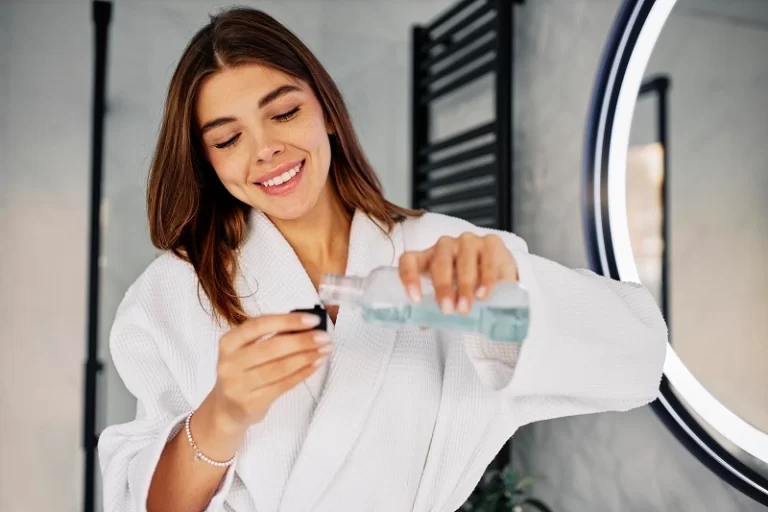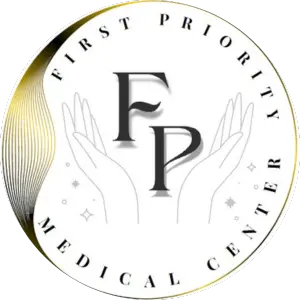- clinic@fpmedicalcenter.com

Is Mouthwash Necessary? A Comprehensive Guide to Oral Health
Introduction: The Role of Mouthwash in Oral Care
- Mouth Wash helps in maintaining good oral hygiene, which is crucial for overall health.
- Toothbrushing and flossing are widely recognized as essential components of oral care routines.
- Mouthwash, however, has been a subject of debate in the world of dental health.
What Is Mouthwash and How Does It Work?
- Mouthwash is a liquid solution used for rinsing the mouth.
- It typically contains water, alcohol, active ingredients, flavoring agents, and sometimes fluoride.
- Mouthwash can help freshen breath and reduce bacteria in the mouth.
- It comes in different types, including therapeutic, cosmetic, and natural mouthwashes.
Advantages of using Mouthwash.
- Improved Oral Hygiene: Mouthwash can complement brushing and flossing by reaching areas that are difficult to access.
- Fresh Breath: Mouthwash can temporarily mask bad breath and provide a feeling of freshness.
- Reduced Bacterial Growth: Some mouthwashes contain antibacterial agents that can help control harmful bacteria.
- Gum Health: Certain mouthwashes can aid in reducing gum inflammation and bleeding.
Disadvantages of using Mouthwash
- Alcohol Content: Many traditional mouthwashes contain alcohol, which can be drying and potentially irritating to the mouth.
- Limited Long-Term Benefits: Mouthwash is not a substitute for proper brushing and flossing.
- Possible Side Effects: Prolonged use of certain mouthwashes may lead to staining, altered taste perception, or mouth irritation.
- No Replacement for Professional Care: Mouthwash cannot replace regular dental check-ups and cleanings.
When Is Mouthwash Beneficial?
- Post-Surgery or Injury: After oral surgery or dental procedures, a dentist may recommend a mouthwash to aid in healing.
- For Specific Conditions: Individuals with certain oral conditions like chronic dry mouth or gum disease may benefit from specific mouthwashes.
- On-the-Go Freshness: Mouthwash can be a quick fix for freshening breath when brushing isn’t immediately possible.
Natural and Alcohol-Free Alternatives
- Natural Mouthwash: Some natural mouthwashes use ingredients like aloe vera, tea tree oil, or baking soda for oral care without alcohol.
- Alcohol-Free Options: Many brands now offer alcohol-free mouthwashes to reduce the risk of dry mouth and irritation.
How to Properly Use Mouthwash
- Follow Instructions: Always follow the manufacturer’s instructions for the specific mouthwash you are using.
- Timing: Mouthwash is typically used after brushing and flossing.
- Swishing Technique: Rinse for the recommended duration, usually around 30 seconds.
- Spit, Don’t Swallow: Avoid swallowing mouthwash, especially if it contains fluoride.
The Final Verdict
- Mouthwash can be a helpful addition to your oral care routine but should not replace brushing and flossing.
- Speak to your dentist to determine if using mouthwash is suitable for your specific oral health needs.
- Whether or not to use mouthwash ultimately depends on individual preferences and needs.
Conclusion: Balancing Oral Care with Mouthwash
- In the debate over whether mouthwash is necessary, it’s important to recognize that it can play a role in oral care but is not a standalone solution.
- Maintaining a healthy mouth primarily involves consistent and thorough brushing and flossing, along with regular dental check-ups.
- Mouthwash can be a valuable tool for some individuals but is not a universal requirement for everyone.
Closing Thoughts
- The question of whether mouthwash is necessary comes down to individual circumstances and preferences.
- Understanding its pros and cons can help you make an informed decision about incorporating mouthwash into your oral care routine.
- Remember that the foundation of good oral health remains proper brushing, flossing, and regular visits to the dentist.
Our Expert Dentist

Dr. Fasmiya Shariff
- Primary Speciality : General & Cosmetic Dentist
- Experience : 4+ Years
General & Cosmetic Dentist
- Dr. Fasmiya Wasim Shariff is a general and cosmetic dentist, with a work experience of more than 4 years in the UAE (Dubai), and 3 years in INDIA.
- Positive, optimistic, energetic, decision maker, team worker, fast learner.
- creative, responsible, resilient and professional.
- Digital Smile design and smile makeover, using veneers and crowns and gingival management (gingivectomy and crown lengthening), preparing, temporizing and cementing all types of veneers depending on the patients’ needs.
You may also like: Ceramic Inlays Vs Onlays: Which one is right for you? Read Now.
Quick Contacts
- Phone : +971 50 395 3762
- Email : clinic@fpmedicalcenter.com
- 303, Al Wasl Building, In front of Dubai Mall & Burj Khalifa Metro Station, Dubai
- Country : UAE
- Copyright 2024 - First Priority Medical Center - All Rights Reserved.

Leave a Reply